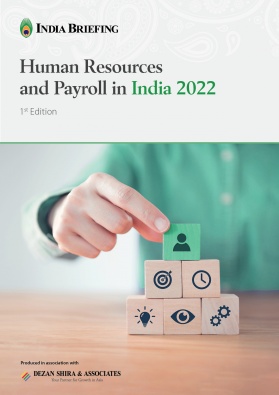India Introduces Taxation Changes for High-Premium Life Insurance Policies
India has recently introduced a new tax rule for life insurance policies that will have a significant impact on policyholders, especially those who have high-premium policies. Under the new rule, any amount received from a life insurance policy with an annual premium of over INR 500,000 will be taxable. This includes the sum assured, any bonuses, and other benefits. The new tax rule is likely to make traditional insurance plans less attractive to investors. These plans are typically purchased by risk-averse investors who are looking for a guaranteed return on their investment. However, with the new tax rule, the returns from these plans will be taxed, which could make them less appealing.
Recently, the Central Board of Direct Taxes (CBDT) has issued updated guidelines regarding the computation of income from life insurance policies with premiums surpassing INR 500,000. This new tax rule has substantial implications for policyholders, particularly those holding high-premium policies. Under this new regulation, any proceeds received from a life insurance policy with an annual premium exceeding INR 500,000 will be subject to taxation. As a result, section 10(10) of the Income Tax Act, previously offering exemptions, will no longer apply to policies with premiums surpassing this threshold. This revised tax rule for life insurance policies will be effective starting the financial year (FY) 2023-24.
Furthermore, in situations involving more than one policy, the same rule applies if the total annual premiums across all policies exceed INR 500,000 within a fiscal year. Consequently, the cumulative maturity amount from all combined policies would be subject to taxation.
Under the previous framework, section 10 (10) of the Income Tax Act extended exemptions to specific sums received from life insurance policies, encompassing bonuses, among others. However, these exemptions are rendered obsolete under the newly formulated CBDT guidelines.
Key exceptions notified in the amended taxation rule
Two prominent exceptions have been outlined within the revised taxation framework:
- Policyholder’s demise: Tax exemption is granted for proceeds received in the event of the policyholder’s demise.
- Unit-Linked Insurance Plans (ULIPs): ULIPs are not subject to the revised tax regulations, retaining their exemption status.
Impact of the new rule on traditional insurance plans
According to experts, these revisions could potentially have a negative impact on traditional insurance plans like endowment, money-back, and retirement plans. The new tax framework may make these plans, which are usually favored by risk-averse investors, less desirable.
Advantages of investing in ULIPs
A Unit-Linked Insurance Plan (ULIP) is a financial product that offers a combination of investment and life insurance coverage. It allows individuals to achieve long-term financial goals while also providing life cover for their families in case of unfortunate events. The premium paid towards a ULIP is divided into two parts: one part goes towards the life cover, and the other part is invested in a fund of the individual’s choice, which could include equity, debt, or a mix of both funds based on their risk tolerance and goals.
The amount that can be invested in a ULIP relies on a number of variables, including the policy duration, insured amount, and policyholder’s age. If the total premium paid for all ULIPs in a financial year exceeds INR 250,000, the maturity proceeds from the ULIP will be taxed.
With the introduction of this new rule, ULIPs have become a more attractive investment option for taxpayers. Investing in a ULIP allows individuals to tailor their life insurance and investment strategy to their specific needs. It provides the flexibility to adapt to changing financial situations and goals while enjoying potential tax benefits.
Here are the benefits of investing in ULIPs:
- Customizable life cover: ULIPs provide the flexibility to choose the desired amount of life insurance coverage. While the minimum life cover is typically set at 10 times the annual premium, individuals can opt for higher coverage based on the policy and insurance company, possibly up to 40 times the annual premium or even more.
- Investment choice: ULIPs offer a range of fund options, including equity funds, debt funds, and balanced funds that combine both equity and debt investments. Investors can align their investment strategy with their financial goals and risk appetite. For instance, those seeking capital appreciation and who are comfortable with higher risk can invest in equity funds, while those looking for steady returns can opt for debt funds.
- Liquidity and partial withdrawal: ULIPs offer a partial withdrawal option, allowing policyholders to withdraw a portion of their invested money as needed. This feature is beneficial for covering immediate expenses like education fees or emergencies. Generally, partial withdrawals do not incur charges.
- Goal-oriented planning: ULIPs are designed to assist in achieving specific financial goals, such as wealth creation, retirement planning, or funding education. By investing in ULIPs, individuals can work towards securing their long-term aspirations while knowing that their premiums contribute to these objectives.
- Tax benefits: ULIPs come with tax advantages under the Income Tax Act of 1961, offering tax savings at various stages of the policy:
- Entry advantage: Premium payments are eligible for tax benefits under Section 80C of the Income Tax Act.
- Exclusive switching advantage: Switching between debt and equity funds within the ULIP is tax-free.
- Exit advantage: Maturity benefits are tax-free, subject to conditions outlined in Section 10(10D) of the Income Tax Act.
About Us
India Briefing is produced by Dezan Shira & Associates. The firm assists foreign investors throughout Asia from offices across the world, including in Delhi and Mumbai. Readers may write to india@dezshira.com for more support on doing business in India.
We also maintain offices or have alliance partners assisting foreign investors in Indonesia, Singapore, Vietnam, Philippines, Malaysia, Thailand, Italy, Germany, and the United States, in addition to practices in Bangladesh and Russia.
- Previous Article India Amends Mining Law to Allow Private Sector Participation in Critical Mineral Exploration
- Next Article India Plans Manufacturing Incentive Scheme for Toys, Leather, and Footwear Products









